
Because I am talking to and informed audience, I presume that all of you know about the history of Jammu Kashmir. My first premise is that Kashmir is an international issue that it cannot be bilateral. Why is it an international issue? Because back in 1947, there was a dispute between India and Pakistan and the people of Jammu Kashmir. The maharaja of Kashmir wanted to keep the state independent. India wanted to occupy it. And the people of Jammu Kashmir, most of them wanted to become a part of Pakistan. That was the problem. The maharaja could not succeed, India succeeded in occupying half of the territory, and the people of Jammu Kashmir, one part of the Jammu Kashmir liberated a part of the territory called Azad Kashmir and it is administered by Pakistan.

So, we have this situation: the state of the Jammu Kashmir is divided into two parts. One part is occupied by India and there is this part, which I am representing today, is called Azad Jammu Kashmir is liberated. In 1947-48, there was a war of independence to which the people of Azad Kashmir liberated a territory and then blocked soils of India who wanted to recapture that territory. In the meantime, Indians had occupied the territory on 27th of October 1947 and our government was constituted n the 24th of October 1947, 3 days before the Indian’s occupation. Nehru was the prime minister of India at that time. He and Mountbatten promised to the people of Kashmir that their occupation of the territory or the accession of maharaja was a temporary phase and ultimately a plebiscite or referendum would be organised to implement the demand of the people of Jammu Kashmir.

Lord Louis Mountbatten, Deputy Governor of India, appointed by the UK, meets with the parties (1947)
But this was delayed and ultimately, they went to the United Nations Security Council (UNSC) in 1948. That was how India, not Pakistan nor Kashmiris internationalised the issue. Because when you bring an issue to the UNSC, you make that issue internationalised. Then the matter, issue, dispute is about the maintenance of the peace and security and the non-resolution of the Jammu Kashmir issue was now a threat to peace and security in 1947. After 71 years, it is still a threat to international peace and security if you don’t resolve, it will continue to become a threat. After listening to India and Pakistan, the international community decided that the people of Jammu Kashmir would be asked about what they want. The UN, the international community I would say, gave self-determination to the people of Jammu Kashmir. I don’t say ‘gain’ because it was an inherent, an inalienable right of the Jammu Kashmir. So, it was recognised by the international community. The people of Jammu Kashmir were very keen on participating that referendum, Pakistan was ready to cooperate with the UN. In the initial phase, India made false promises to cooperate with the international community for the organisation of the plebiscite. But later on, it backed out and broke its promises. It tried to annex the occupied the territory in the state of India. 71 years ago, India has not been able to annex the territory. It has used brute force, it has killed half a million people there, Indian soldiers systematically raped women, they tortured people in prisons and cells, they blinded 6.000 people, and they destroyed houses, churches, gardens, bonds, and crops of the people of Kashmir.
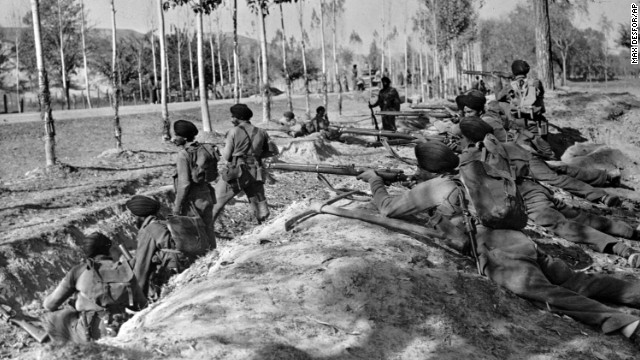
They insulted and humiliated the people. They tell lies about people saying that they are terrorists. But they are unarmed people. But India has deployed 780.000 troops to conquer unarmed civilians in Kashmir and the Indian forces are miserably failing in doing that. According to Indian’s own statistics, the number of the indigenous militants not coming from Pakistan, or any other part of the world is 250 and they need 780.000 troops, belonging to one of the strongest armies in the world, which is more than half of the India’s armed forces, they need to deploy them to combat 250 so-called militants of terrorists. Does this make sense to you? Let me come back to the theme of the day. Is this a bilateral issue or an international issue? It is not a bilateral issue. According to the UNSC resolution, the people of Jammu Kashmir automatically become the third party. There is Pakistan, India, and the people of Jammu Kashmir and the people of Jammu Kashmir are the key party to the dispute because they must determine their future. So, it is not a bilateral issue. It is a trilateral issue and I always called it as a quadrilateral issue because the UN in the initial phase was a party to the dispute as mediator and facilitator, the body that came up with an idea to resolve and end the dispute.
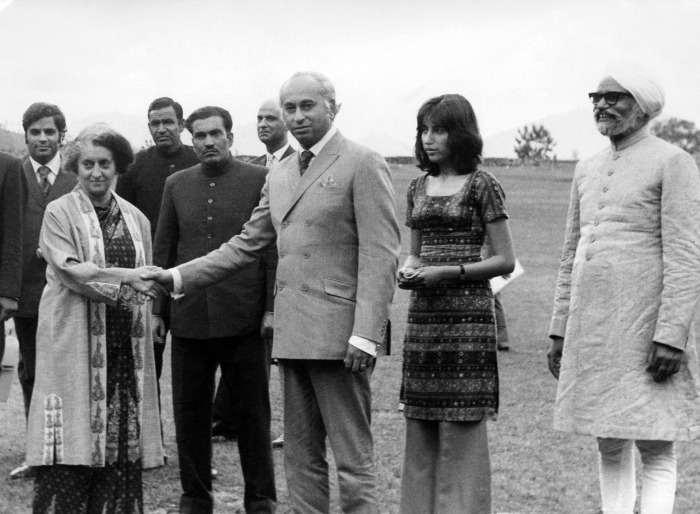
Pakistan Prime Minister Zulfiqar Ali Bhutto with Indian Prime Minister Indra Gandhi (1972)
So, it is not a bilateral issue. India tried to make it a bilateral issue and it succeeded in doing so from their point of view, but we never recognised that position. Pakistan, in good faith, held many rounds of discussions with them, but they were all unproductive. Why? Because Pakistan was sincere, but India was not. Pakistan wanted a resolution to the Jammu Kashmir dispute and India wanted to delay the process and dilute to agenda. Whenever Pakistan or the international community pressed to India to hold bilateral negotiations, India was always reluctant by saying that Pakistan is supporting the terrorists in the Indian occupied Kashmir. So, India is not sincere about engagement of a bilateral level. On the one Indians say they want bilateral dialogue, on the other they say the international community has nothing to do with the Kashmir dispute. This is called double speak, this is called deception and the people of Jammu Kashmir understand it very well. In the recent past, because of this dilution created by India, many of the western countries stopped having interests in the Jammu Kashmir issue thinking that this was a bilateral issue between India and Pakistan and there was no need to intervention of the international community.
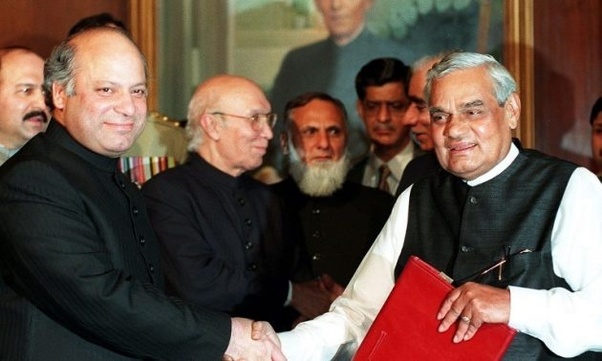
Pakistan Prime Minister Nawaz Sharif with Indian Prime Minister Atal Bihari Vajpayee (Lahore Agreement - February 21, 1999)
But in 1998, India and Pakistan became nuclear powers and shortly after that, the UN passed a resolution which says that the people of Pakistan and India should engage and resolve this dispute because they recognised it as the root cause of the instability or the nuclear competition that emerged in South Asian continent. Again, it was internationalised, which I believe has always been international and it will always remain as an international issue unless it is resolved. You cannot ignore it. It is like an elephant and even if you try ignoring, it is always there. This was one reason that the international community disengaged in the Kashmir dispute. In the recent decades, there was another reason: the reconfiguration of the world order. India used to be tied to the strains of the Soviet Union in the cold war era, and therefore, although they were not enemies of the US, they tended to be hostile to the US. But starting in 1995, after the disintegration of the Soviet Union, Indian started to look towards Washington and in the following year, there was rapprochement between India and the US. To put it very briefly, Washington and India behaved strategically, and, from my point of view, India succeed in deluding Washington that it would protect the US’ interests in the region and the US lost its interests vis-à-vis China. My own theory is that India is never going to wage a war with the US against China under or circumstances. In fact, it works to strengthen its ties with China. So, again this is double speaking. In Washington, they speak with a different tongue, and in Beijing they have another tongue towards Chinese statemen.
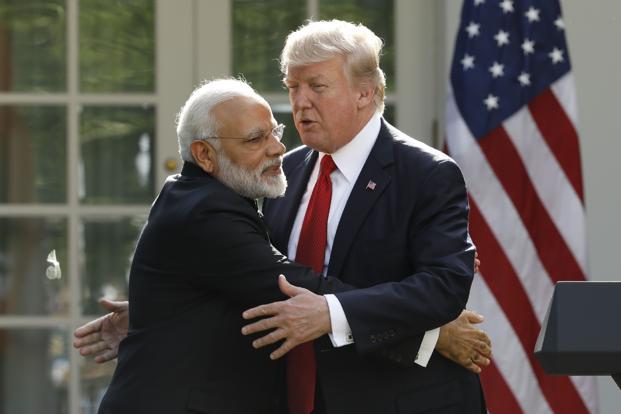
Because of these increasing economic interests of India with the western world led by the US, Kashmir was eclipsed and marginalised. Therefore, the western forums which included the UN General Assembly is not dominated by the western powers in terms of numbers, but in terms of what is passed on matters, especially in the UN Security Council or the Human Rights Council, resolutions generally pass under the leadership of the US. So, they also marginalised or side-lined the issue of Jammu Kashmir. Despite these efforts, the issue of Jammu Kashmir remains central to regional and international politics. As I said, non-resolution of this issue would continue to pose a threat not only to Pakistan and South Asia region but also to the entire world. This was dramatically highlighted for the world after the India’s aggression against Pakistan on the 26th of February. Thankfully, a day later, Pakistan retaliated with proportions and with a high degree of credit. We said that if India commits aggression against Pakistan, that aggression will be repassed, and that India will pay a high price. All of a sudden, the entire international community became interested in Kashmir, and they became interested in the very fragile and precarious relations between India and Pakistan. Why? Because they did not want the military engagement between the two countries to escalate or the situation to deteriorate to a point where the conventional scenario would turn into a nuclear scenario. These are tactical and strategic weapons. Secretary of State Pompeo, National Security Advisor John Bolton, and our friends all over the world made telephone calls to the prime ministers of Pakistan and India to diffuse the tensions there. So, because they fear a nuclear conflict. Correspondents in the region wrote about the instability, insecurity, and high risk of a nuclear war before the conflict. But that particular theme was not picked up by Washington, Brussels, London, Geneva or other security mechanisms in Europe. If this issue is not resolved, you would have this highly precarious situation in South Asia. I’ve been talking about the nuclear dimension of the Jammu Kashmir dispute which also makes it very much international. I spoke to two think-tanks yesterday, and the feedback from my friends here is that I almost scared my audience with detailed scenario-building. In reference to their advice, I would like to mention, if Kashmir is a potential nuclear trigger, they will have very much dangerous consequences for the entire world. I want to briefly mention about them. If a nuclear exchange takes place between India and Pakistan, that means refugee outgrowth to all parts of the world. The number of economic migrants, illegal refugees crossing the Turkish territory could also increase. This is a scenario-building. There could be a global recession. There could be a nuclear winter. About 2.5 billion people of the world could be exposed to radiation directly or indirectly and its harmful effects. There would be a tremendous change in climate. Why do I highlight this? Because these speculations have been made by scientists. Because I want to appeal to audiences like you to more proactively pursue the cause of Kashmir and work for the resolution of the Jammu Kashmir dispute. What is the international community doing? The role of the international community in the past years has been minimal but it brake its long lasting silence. I'm talking about the indifference of the West. And this indifference continued for decades. This scenario changed in June last year. Mr. Huseyin, the president of the Supreme Council of Human Rights, prepared a 48-page report, where he described the violation of India's human rights. In addition, another report followed. The British Parliament issued this report. There is a Kashmir group in parliament. The European Parliament's human rights commission held a hearing on the report of the high commissioner, to stop India from killing, the crimes of the invading forces and the destruction of people. Women don't know if their husbands live in Kashmir.
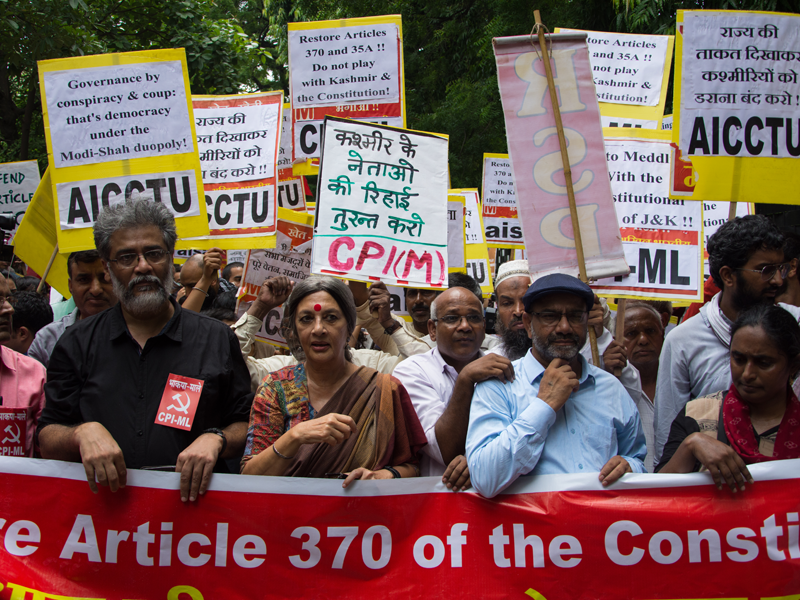
It was either destroyed by the occupation forces or destroyed. Kashmir's leaders are being tortured in prison. They are also disturbed by the intelligence service. Workplaces, houses, fields are being destroyed. Young men are aiming. They are systematically destroyed. Every day, bad, grim research is done. They use people as armor in this research. They hide behind guns and search for people in violation of human rights. All conventions in the human rights declaration are being violated by India. They do it recklessly, they are not afraid to see any punishment. But it is such an international situation that it does not attract much attention.
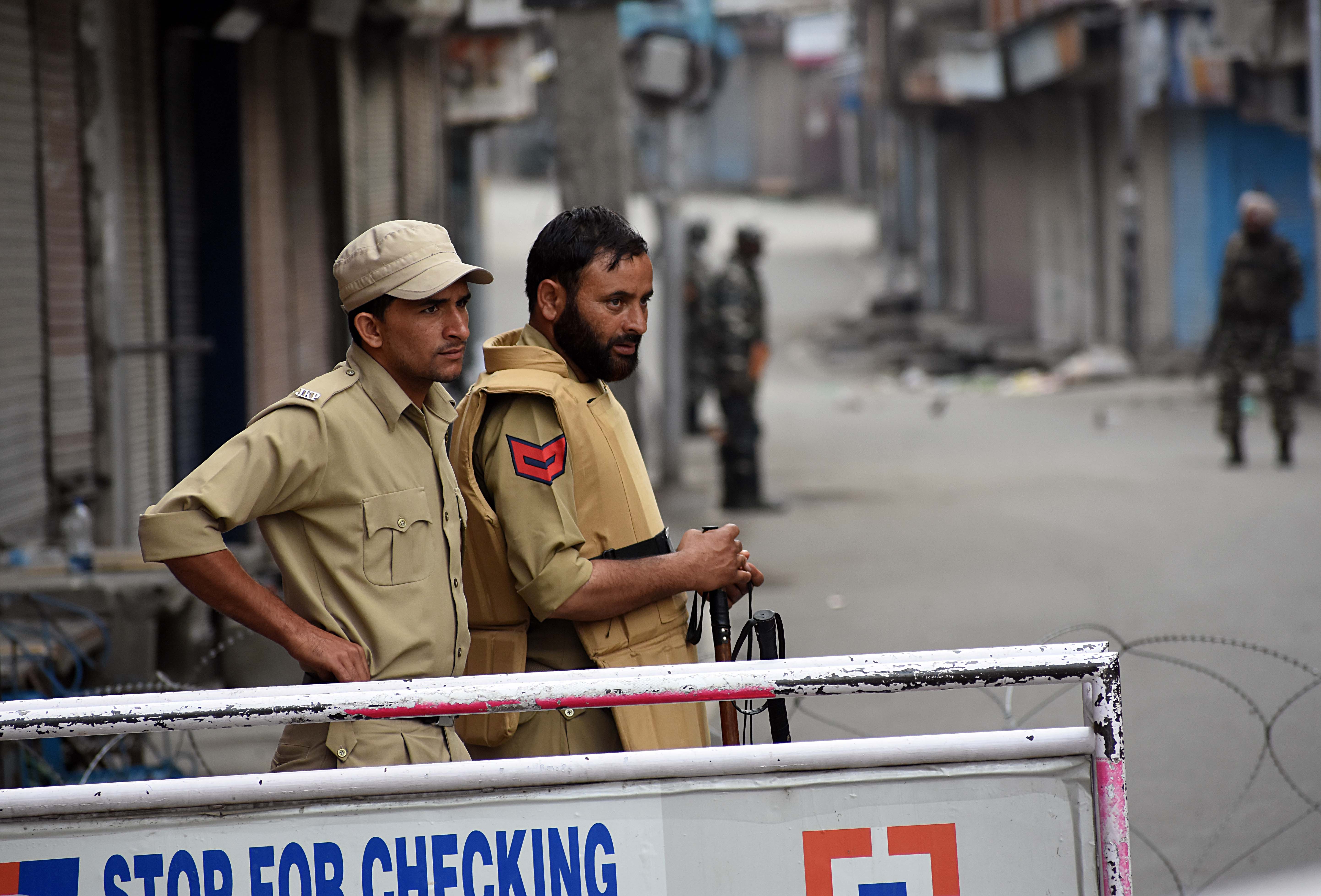
I talked with a lot of listeners in Turkey. I saw that, I have a very serious view of the Pakistani state with Turkey. We are grateful to Turkey for supporting the Kashmir issues. Turkey admits that the international community must play a role in this regard at this point. Your President spoke to the UN. He spoke with his secretary general. Islam has brought a lot of cooperation to the agenda. We are grateful to TR for supporting us internationally. We are also grateful for your efforts to talk to the prime minister of India. So India must prepare itself, it will not torture. Lie to the world will not tell false information. There are other things I want to say, but the subject I want to repeat was good for the people of Kashmir last year because the international community ended its silence and spoke. But why isn't that enough? Because we have to go forward. We must protest India and take it forward."
Answers and Questions
Q- Do you receive the support you would expect from other Islamic countries about Kashmir?
A- We are receiving support from the Organization for Islamic Cooperation. They make statements every year, they know what India does, they condemn. There is no such support and a special envoy assigned to Kashmir. But obviously we cannot get the support we've received from other Islamic countries from Turkey. There is a collective support, but we are grateful, but we cannot get the same support from many countries. Saudi Arabia is a member of this collective union and has given support to Pakistan behind the scenes. So are Azerbaijan and Niger.
Q - Other countries are trying to use this issue for their own benefit. And this is dangerous for stability in that region. Can you tell us about these terrorist activities?
A - I don't want to go into details, but some Western countries are singing the song of India, and they show Kashmir as terrorists. However, the people of Kashmir are very peaceful people. They refer to Kashmiris and Muslims as terrorists. These aren't extreme fanatics. For example, the prime minister of India has been holding election rallies for months and treating terrorists against Muslims, showing hundreds of thousands of people that they are enemies. The best thing for them is violence. Nobody criticizes them. Have you heard any objections, criticisms, condemnations about this that will use nuclear bombs to destroy Pakistan? This is nuclear terrorism to me. The nuclear threat comes from the head of state. So we have to go uphill. We defend the rights of a nation, a people in a difficult situation. I believe that we will succeed.
Q- If a permanent complaint is created through the complaints mechanism in the international community, a precautionary clause may be proposed to the general assembly. In ancient times, we were told that in relation to Cyprus, Greeks and Turks are different people. Yet the Kashmiri are also different. So it is important to put a permanent complaint on the agenda.
A- 2-3 years ago, we did not know how to contact international authorities on human rights, but we are now meeting with representatives and making complaints. All human rights issues are on the agenda of the human rights council. Torture, women, protection of human rights ... but where is the distress? The Council doesn't seem to take this seriously. Kashmir is renewed every year on the agenda of the council. The problem is here. Kashmiri people have different, various elements. We have different languages, ethnicity, and religious diversity. But these do not divide Kashmir. This population is all over Kashmir. To me, this idea is wrong.
Q- What is the best solution for the Kashmir problem for you?
A- The best condition we accept is not acceptable for India. We have to convince India to re-settle on the solution table and through diplomatic solutions. We have to put forward diplomacy against India's military methods. The best solution would be a referendum for Kashmir. If you don't do this, come to the negotiating table and work on a new formula. The people of India, Pakistan and Kashmir should be represented at this table. We are struggling now, so we cannot find the exact solution because there is no party. When you compare this situation with Syria, you can understand it at different levels. Not all parties here are ready to talk to each other. This is the dilemma we face.
Q- There is an election in India and we already know that Modi has a nationalist approach. Do you think that the Kashmir problem can be solved with the results of this election because it is more positive for Kashmir? How do you see the situation in China? Could China be an intermediary? China has good relations with Pakistan. So is India.
A- China is behaving very well. He doesn't want to be a party. He will of course be a party from Pakistan, be a party with the people of Kashmir and talk about protecting Kashmir's rights, but will not engage in any action that will drive India away. From time to time, China has hinted at dissolving this tension through newspapers, offering a formal mediation, but India has never approached it. I do not want to make any predictions about the elections in India. Will a Modi be re-selected? I think he was starting to turn to extremism. Power ruled by Congress was not an angel either. They killed them, they did terrible things about human rights. Modi speaks openly, but the congress side was no less cruel. They didn't just say it out loud.
Diğer İçerikler